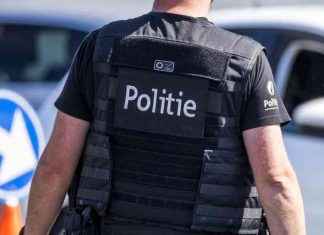the ROME – There is a new animal species in the Mariana trench. Just discovered by researchers at the University of Newcastle is already susceptible to the pollution produced by man. And’ the new species of tiny crustacean, the Eurythenes plasticus who, while living in the deep ocean, seems to have been contaminated from plastic. Some individuals of this anfipode (the Amphipods are small crustaceans characterized by the body is compressed laterally and is slightly arched), have ingested plastic by showing the presence of traces of PET (polyethylene terephthalate), a type of plastic used in a wide variety of products of wide use, from water bottles to clothing sports. The research, supported by Wwf, has been published today in the renowned scientific journal Zootaxa.
“The species newly discovered Eurythenes plasticus shows us how severe the effects of the poor management of plastic waste. Species that live in the deeper places and remote regions of the earth have already ingested plastic even before being known by humanity. The plastic is in the air that we breathe, the water we drink, and now also in animals that live far away from human civilization,” said Isabella Pratesi , director, Conservation of Wwf Italy. the Alan Jamieson , chief researcher at the University of Newcastle, said: “We decided on the name Eurythenes plasticus because we wanted to underline the fact that we have to act immediately to stop the ’tsunami’ of waste plastic that is poured out in our oceans”.
the size of The use of plastics is now the subject of numerous researches by many scholars, who are demonstrating how we have addressed the wonderful biosphere (the sphere of life on Earth, thanks to which humanity lives) in the period termed the Anthropocene, to highlight the size of the dominant, pervasive and destructive of human activities on dynamic balances of the natural systems of our planet. Just last year an important research appeared in Nature Communications, demonstrated the adverse effects of plastic on marine communities of the bacterium Prochlorococcus, a fundamental micro-organism marino, which is at the base of at least 20% of the production of oxygen comes from marine bacteria: the evidence is that the nanoplastiche can influence the composition of the marine communities of these organisms and their photosynthetic capacity. “Not all individuals of the new species E. plasticus contain plastic. Then, there is still hope that many other examples are lacking. To help protect marine species and their natural habitats, we are also asking Italy to work for an international treaty legally binding to put an end to marine pollution of plastic,” concludes Isabella Pratesi.
“The Republic will fight always in defense of the freedom of information, to its readers and to all those who have at heart the principles of democracy and civil coexistence”
Carlo Verdelli SUBSCRIBERS TO REPUBLIC © Reproduction reserved Today on The torments of the Count: “But there rialzeremo as after the bridge Morandi”, Giuseppe Sala: “Milan is the trench that must withstand. By the government making the right choices,” The crisis in the airports: passengers on the decline up to 65% off the government to The trade unions: up to 4 billion for the shock absorbers and smes The freedom hostage
the Republic







